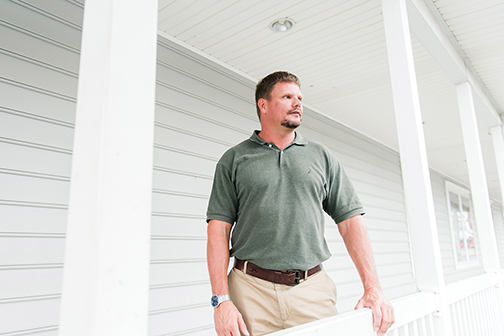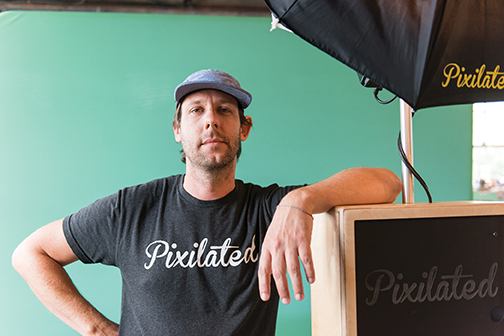Chuck Watson ’12, social work, is a leader in the fight against substance abuse. In addition to co-owning two Riverside Treatment Centers in Maryland, Watson is president of the Maryland Association for the Treatment of Opioid Dependence.
There’s a reason Watson has dedicated his life to helping those struggling with opioid addiction. He knows what his clients are going through because, more than 12 years ago, Watson was going through it himself.
Watson began experimenting with drinking alcohol and smoking pot in middle school and high school. It was recreational, he says, until he lost interest in activities he previously enjoyed.
Soon Watson began going to treatment centers. He would go in, get clean, come out, and use again. By 19, he had been arrested for many DUIs, and in his early 20s, he began using cocaine. “Even at a young age, I understood my substance abuse was a problem,” Watson explains.
 Watson got clean on his own in his mid-20s when his then-wife gave birth to their daughter, Dillan. “I wanted to do well,” Watson says. “I wanted to be a good dad.”
Watson got clean on his own in his mid-20s when his then-wife gave birth to their daughter, Dillan. “I wanted to do well,” Watson says. “I wanted to be a good dad.”
As with many addicts, the cycle began again and became worse when Watson got divorced. During the next decade, his life was a spiral of drugs, like pain meds and heroin, treatment centers, and psychiatrists. “Drugs were what I lived for,” says Watson.
While on probation, Watson continued to have dirty tox screens and get arrested. His probation officer gave him the option of going before a judge for probation violation – which would likely mean jail time – or trying an in-patient treatment center in Florida that had shown success with other addicts.
Watson chose treatment, and, this time, it worked.
On September 15, 2005, Watson stopped using. Since then, he has stayed clean. “I realized that I needed to make profound changes in my life,” says Watson. After 10 months in treatment, Watson returned to Baltimore, continued going to Narcotics Anonymous meetings, and got a home group as well as a sponsor. When he noticed the vast number of people struggling with addiction, he knew what he wanted to do – help them.
Watson worked in the field at many health services centers. He earned his bachelor’s degree at UMBC and then a master’s at University of Maryland, Baltimore. In June 2016, he and two co-workers, Crystal Pulsirisaroth and Michael Oliver, opened the first Riverside Treatment Center, a medication-assisted and client-center facility, in Rosedale. They hoped to have 70 clients in the first six months; they had that many in less than three weeks. Today, they help more than 800 clients.
In June 2017, the Edgewood facility opened. Both centers have same-day intake, which is important to Watson, now 50 and remarried with a family.
“When people make a decision to seek treatment, there is a small window of time. If they can’t get treatment immediately, they may change their minds. Once someone makes this decision, we want to be able to instantly provide the service to help them,” says Watson. “We do this because when people stop using, they get their lives back, and it’s rewarding and satisfying.”
— Michele Wojciechowski
Read about UMBC opioid research: Shining a Light
Tags: Fall 2017




